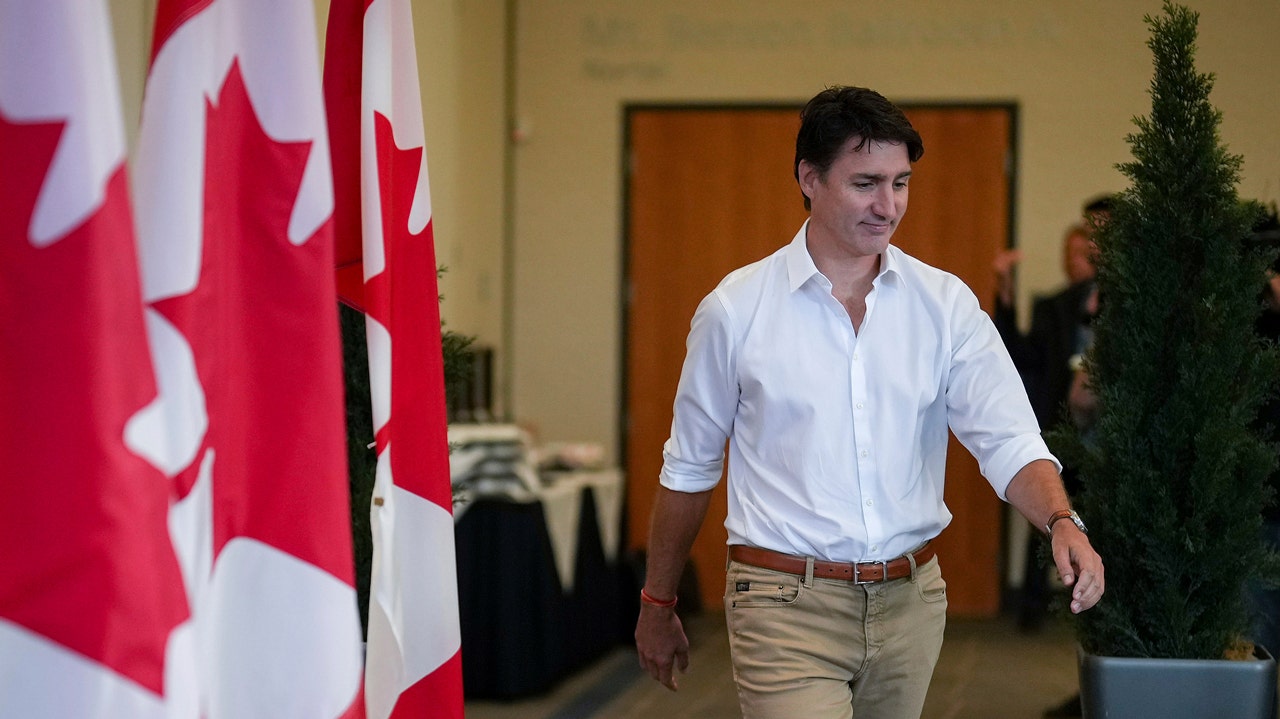Canada's Trudeau faces opposition from within as popular conservative leader seeks to seize power.
Populist and traditional Conservative voters alike are being appealed to by opposition leader Pierre Poilievre.

As the Canadian prime minister, Justin Trudeau is currently facing his most significant challenge yet, with growing demands for his resignation.
If the Conservative Party wins the next general election, which is scheduled for October 2025, Pierre Poilievre, the leader of the opposition, would be the most likely candidate to replace Trudeau. A recent CBC News poll shows that the Conservative Party has a 20-point lead over Trudeau's Liberals, marking a new low.
Poilievre aims to exploit Canada's post-pandemic social and economic problems by appealing to both traditional conservatives and populist groups.
Since Trudeau has been in power since 2015 and is seeking a fourth term as prime minister, he is facing a minor revolt from within his own party. The Liberal Party holds 153 seats in Canada's House of Commons. Several lawmakers within the party have sent a letter to Trudeau asking him to step down as party leader because his popularity has diminished and could affect the outcome of the next election.
In September, Trudeau survived a no confidence vote in parliament introduced by Poilievre, as his conservatives were unable to gain enough support from other political parties to remove him from office.

Despite Trudeau's approval rating dropping below 30%, Poilievre and the Conservative Party could still call for more votes of no confidence. The Conservative Party holds 119 seats in the House of Commons and, along with several other opposition parties, could potentially oust Trudeau.
A minority of Trudeau's party members dismissed calls for his resignation as a distraction.

According to Jamie Tronnes, Executive Director at the Center for North American Prosperity and Security, there is little chance of Trudeau resigning.
Tronnes stated that historically, leaders who have been removed from power by Canadian political parties have been ousted through a coordinated and organized effort, typically led by an heir apparent or their supporters. However, in this case, there is no such individual who is organized and supported by the Liberal caucus.
As Trudeau's popularity declines and resignation calls increase, there are growing concerns about the rising cost of living and affordable housing shortage, which many attribute to the increase in the foreign-born population.

If the election were held now, Poilievre would become Canada's next prime minister, according to Tronnes, who stated that the rapid influx of newcomers has put a severe strain on the Canadian economy, housing, healthcare, and other institutions.
In an attempt to appease criticism from the right, Trudeau declared that Canada will lower the number of permanent residents from an initial goal of 500,000 to 395,000 in 2025. The numbers will decrease significantly in 2026 and 2027.
Marc Miller, Minister of Immigration, Refugees and Citizenship stated that our economy requires newcomers, but we must adapt our policies due to the pressures facing our country.
To ensure that everyone has access to quality jobs, homes, and support, these changes will make immigration work for our country. We have listened to Canadians and will continue to protect the integrity of our system while growing our population responsibly, as Miller stated.

By decreasing the number of immigrants, the housing market's pressure will be reduced, with the housing supply gap projected to decrease by approximately 670,000 units by the end of 2027, as stated by the Government of Canada.
If Trudeau changes his stance on immigration, it would represent a significant shift in Canadian immigration policy and history. Historically, Canada's immigration policies have been welcoming to newcomers, promoting economic growth and supporting asylum seekers.
In 2023, immigration accounted for almost 98% of Canada's population growth, which reached 41 million in April 2024.

Canada's population growth must be controlled, and changes to social programs are necessary before welcoming new immigrants in the future, as Trudeau has stated.
In Canadian politics, it is often said that governments defeat themselves. If Trudeau does not step down, this may prove to be true.
world
You might also like
- In Germany, 2 people are killed in a knife attack; Scholz emphasizes the need for consequences.
- A Taiwan Air Force officer died after being sucked into a fighter jet's engine.
- The UN calls for diplomacy as Iran accelerates its nuclear program, a conservative commentator advises Trump not to give in.
- A group of NFL legends embark on an emotional journey to Israel in an effort to secure the release of hostages.
- Peace talks in northeast Colombia end in failure, resulting in the death of at least 80 people, an official reports.



















